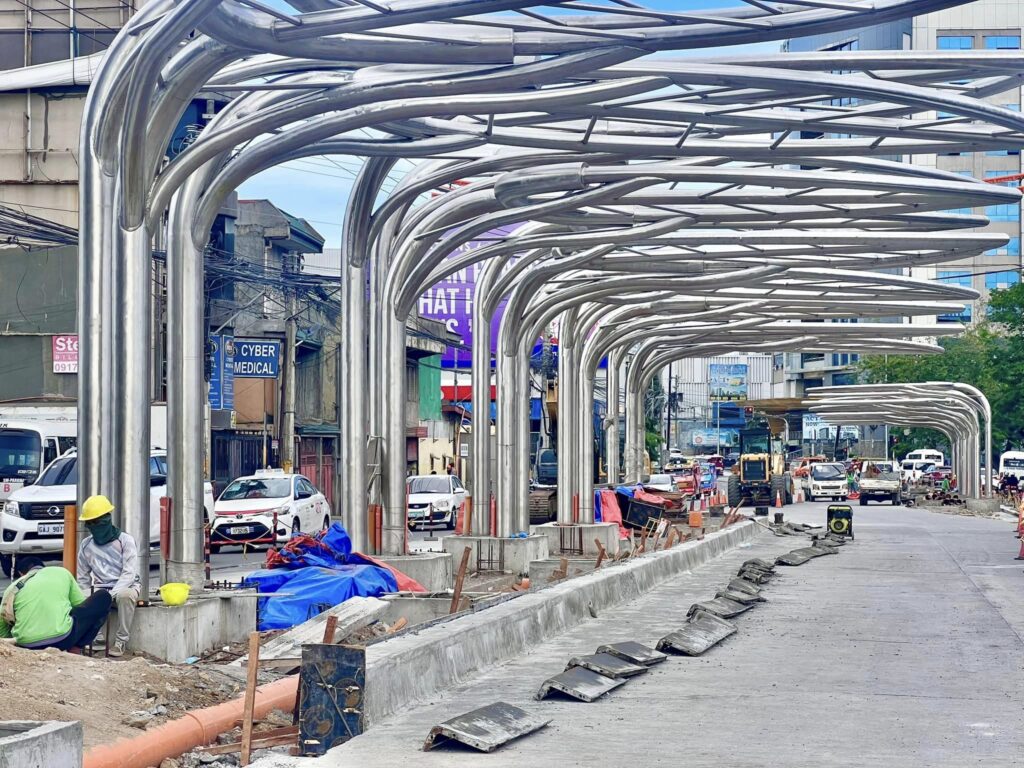Councilors demand clear plans, transparency in CBRT

Cebu Bus Rapid Transit along N. Bacalso Avenue as of June 2, 2024. | Photo credits: Cebu Ni Bai
CEBU CITY, Philippines – Cebu City Council members have called for greater transparency and detailed planning in the implementation of the Cebu Bus Rapid Transit (CBRT) project.
In an executive session on June 14, councilors, including Joy Pesquera, voiced concerns to Engineer Norvin Imbong, the CBRT project manager, stating the need for clear, concrete plans and more stakeholder involvement.
Imbong’s presentation outlined the local government unit’s vision and development plans, which include revitalizing Cebu’s downtown Colon area through pedestrianization.
“Now the city is identifying three major districts: the SRP New Business and Housing District, the historic district, and the Creative and Innovative District, which is the port area,” Imbong explained.
READ: CBRT project faces uncertainty amid mismanagement, land disputes
TIMELINE: The Cebu Bus Rapid Transit
Netizens want Cebu BRT construction to proceed: ‘Ipadayun na’
The plans involve creating extended sidewalks and arcaded areas to provide shelter for pedestrians, aiming to enhance urban space and improve safety for women, children, and persons with disabilities (PWDs).
“Aligning with this development of the city, DOTr adapts and incorporates these components through Urban Realm Enhancement and Sidewalk/Pedestrian Improvement,” Imbong added.
Pesquera, however, expressed frustration over the lack of concrete details specific to the CBRT project.
“Mostly, what you have mentioned are the plans of the city in terms of pedestrianization of our roads,” Pesquera noted. “However, you have not presented what are the plans of the CBRT in terms of that.”
Pesquera criticized the CBRT team for failing to provide detailed plans about bus stops, route designs, and specific impacts on areas like Plaza Independencia and Sanciangko.
“Where will it be if we allow the BRT to pass through that area? Which structure will be affected?” she demanded.
In response, Imbong described plans for the stretch from P. Del Rosario to GV Tower, which would feature two lanes per direction, bike lanes on both sides and arcaded sidewalks.
“This will be connected to Plaza Independencia with one lane per direction, including bike lanes on both sides,” he said.
Pesquera’s frustration peaked as she questioned the inevitability of these plans. “When you say, imo nang i-implement, does that mean we have no say?” she asked pointedly.
Imbong attempted to reassure the council by explaining that the purpose of the presentation was to introduce the plans to the council and that the details were still open to change.
“I think this is the purpose of this presentation, now we are presenting this to the council. It doesn’t mean that this cannot change,” he said.
He said that stakeholders’ input is crucial and suggested simulating routes by placing cones to address apprehensions about pedestrianization.
Pesquera also questioned whether the CBRT had conducted a vehicle count to assess potential traffic congestion, citing concerns about the project’s realism.
“Kay imohang gi present, wala man ka mi present sa route plan nimo sa BRT,” she pointed out.
Imbong clarified that in the discussed stretch, BRT buses would not pass through, and only Public Utility Vehicles (PUVs) and modernized jeepneys would use the route. This clarification prompted Pesquera to ask, “If walay BRT bus, nganong manghilabot man mo?”
Last January 10, during the council’s regular session, Pesquera also criticized the CBRT project.
Along with Councilor James Cuenco, she pointed out several issues, including delays, rising costs, and poor planning and design.
Pesquera, who has been against the BRT from the start, mentioned that similar projects in Curitiba, Brazil, and Aminabad, India failed to solve traffic problems. /clorenciana
Disclaimer: The comments uploaded on this site do not necessarily represent or reflect the views of management and owner of Cebudailynews. We reserve the right to exclude comments that we deem to be inconsistent with our editorial standards.
